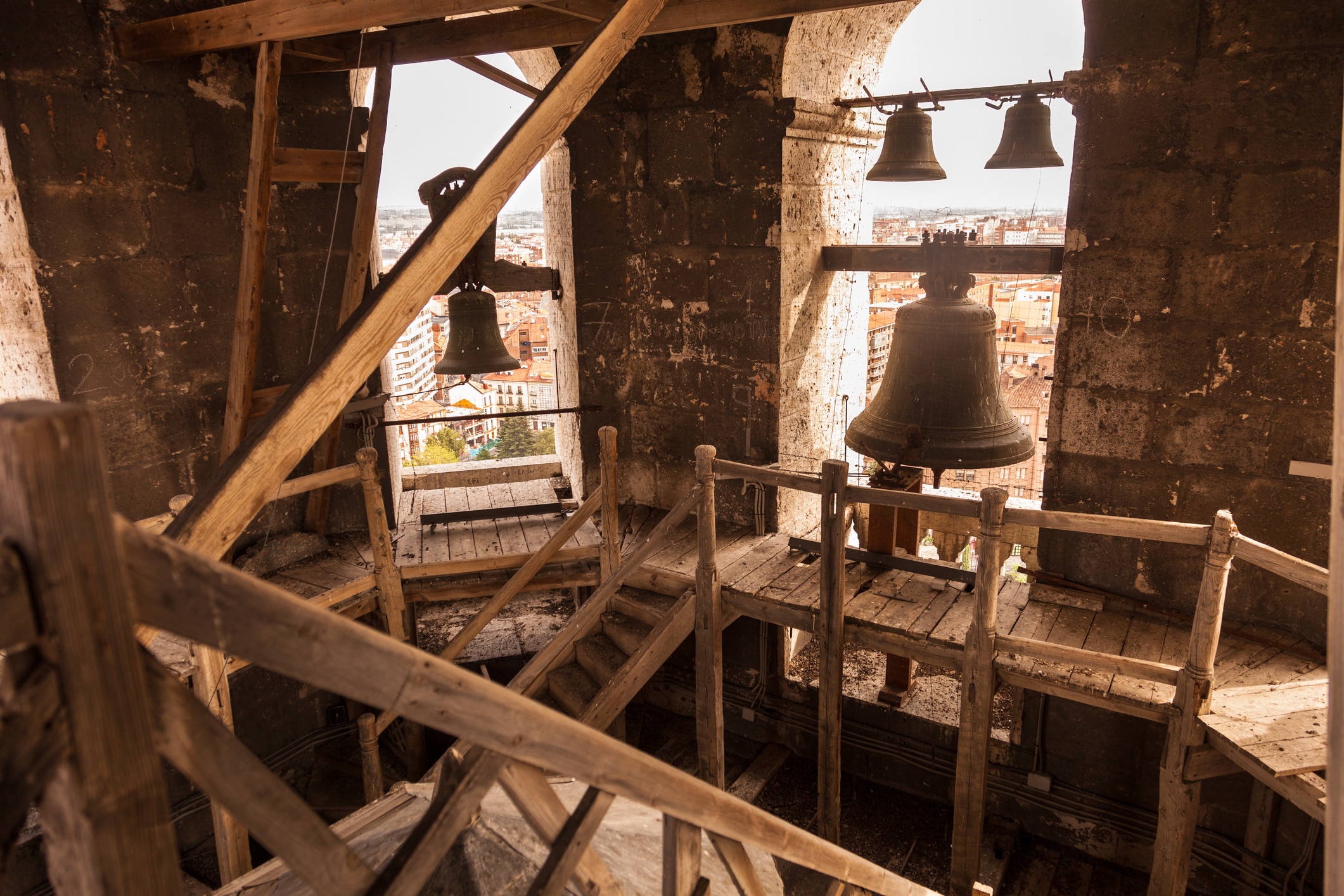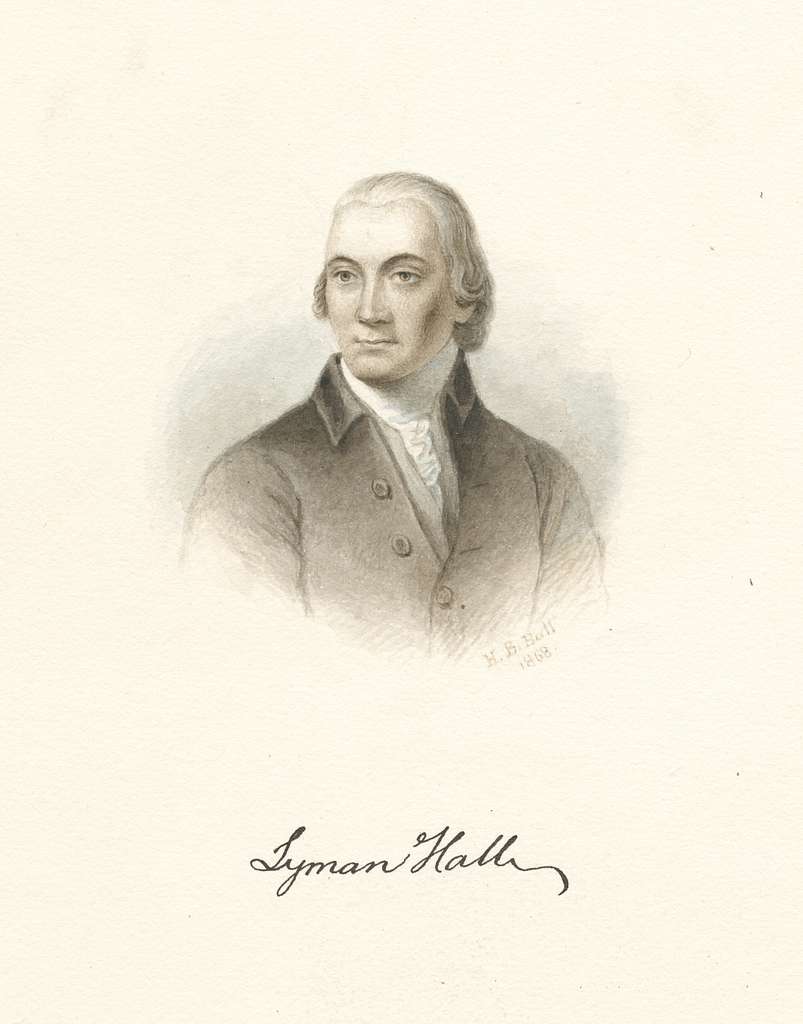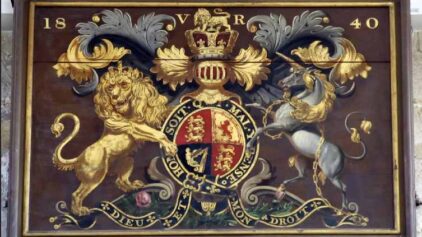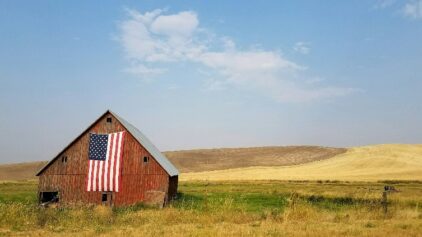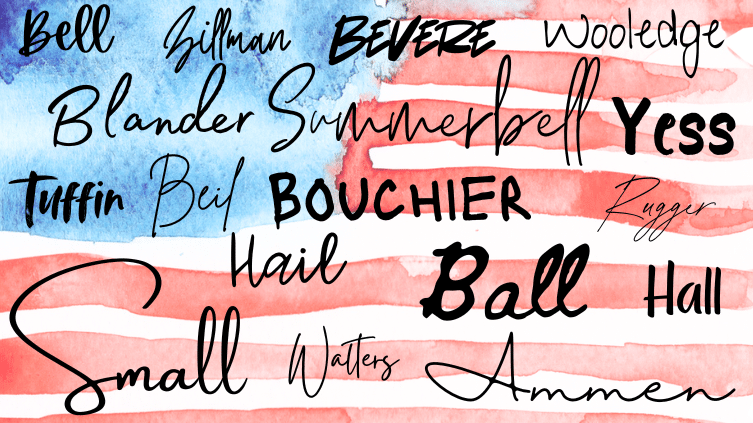

If your last name is Summerbell, you are probably among the final bearers of this surname. To date, it is held by only 98 people in the United States, including both citizens and non-citizens alike.
If your last name is Bell, you may well be on your way to joining Summerbell and becoming a rare breed, at least in the U.S. On the other hand, if your last name is Beil, your family name is gaining momentum and multiplying at a significant rate in the United States.
What a difference one letter makes!
The MyHeritage Research team examined the data in the U.S. Census Bureau to discover which other surnames have surged in popularity in the U.S. and which names have become so rare in recent decades that they may well disappear altogether.
Bell
According to formal data from the U.S. Census Bureau, Bell is the surname whose distribution has declined most sharply in recent decades. In 2000, Bell was ranked at number 67, with 264,752 people bearing this last name. By 2010, it had dropped 39 places to rank at number 106, with 220,599 people bearing the name in the U.S. This represents a decrease of 44,153 people — a decline of 16.7%.
The surname Bell has diverse origins, primarily from northern England and the Scottish Lowlands. It could derive from the Old French bel, meaning “handsome,” or as a short form of Isabel. Alternatively, it could come from the Middle English belle, referring to a bell, often indicating an occupational name for a bell ringer or maker. Bell also has connections to Scottish Gaelic, German regions like Rhineland and Westphalia, and Norway. In the U.S., it has been Americanized from various European and Slavic names, including Jewish surnames.
Ball
The surname Ball has also shown a dramatic decline within the same decade. It dropped 142 places, from ranking 366th in 2000 to 508th in 2010. In 2000, 77,561 people bore the name, but by 2010, the number had dwindled to 66,059 — a decrease of 11,502 people, or 14.8%.
The surname Ball has multiple origins. In England, it could derive from the Middle English word bal or ball, referring to a ball or sphere, used as a nickname for a short or round person or as a topographic name for someone living near a knoll or rounded hill. It may also come from the Middle English ball, meaning bald, or from an Old Norse personal name related to bravery. In Germany, bal could indicate a juggler or derive from a place name, and it has also been Americanized from Dutch Bal.
Beil
On the flip side, Beil is one of the names that has risen significantly in the U.S. between 2000 and 2010. It jumped 11,782 places, moving from rank 12,347 to rank 565. This rise means an addition of 57,155 people bearing the surname — a staggering 2,476% increase within one decade.
This surname originates mainly in Germany and possibly France. Like many other surnames in history, it might imply the occupation of its ancient bearers. Accordingly, Beil is connected in meaning to an axe or hatchet (bīl, meaning “axe” in Middle Low German) and therefore to occupations such as carpenters.
Hall
The surname Hall has experienced a notable decline. In 2000, it was ranked 30th, but by 2010, it had dropped 15 places to rank 45th. The number of people bearing the surname fell from 473,568 in 2000 to 407,076 in 2010 — a decrease of 66,492, or 14%.
The name Hall originates from English, Scottish, Irish, German, Norwegian, and Danish roots, meaning “hall” or “spacious residence.” It was a topographic name for those living near a hall or an occupational name for someone working in one. In Germany and Austria, it also referred to places associated with salt mines. In Sweden, it refers to a residence or rocky location, and it is also a Romanized variant of the Chinese surname He.
Among notable bearers of this surname in history is John Hall, born in Kent in 1584, who emigrated to New England in 1632. He founded a notable American family, including Lyman Hall, a signer of the Declaration of Independence, and Asaph Hall, the astronomer who discovered Mars’ moons.
Hail
From Hall to Hail, we see an entirely different trajectory. Hail is among the surnames that have increased dramatically in one decade, jumping 9,959 ranks from number 10,323 to number 364. The number of bearers rose from 2,860 to 86,240 — a meteoric increase of 83,380 people, or 2,915%.
The surname Hail, of English and Scottish origin, is derived from the Middle English and Old Norse word heil, meaning “healthy.” It may also come from the Old English personal name Hægel, related to hailstones. In South Germany, it is a variant of the surname Heil.
Small
True to its name, Small has experienced a decline over the past decade. Ranked 681st in 2000, it dropped to 861st in 2010—a decrease of 180 places. The number of bearers fell by 5,638, representing a 12.3% decline.
The surname Small has English and Scottish origins and was derived from the Middle English word smal, meaning “slender” or “small in stature.” In Ireland, the name was adopted as the Anglicized version of the Gaelic word beag, which also means “small.” It is additionally an Americanized form of similar European surnames, such as the German Klein and Polish Mały.
Walters
The surname Walters saw a significant decrease between 2000 and 2010, dropping 88 places in rank, from 262nd to 350th. Over this period, it lost 14,905 bearers, reflecting a 14.3% decline in popularity.
Walters is an English variant of the Germanic surname Walter. In England, it is a patronymic form of Walter, meaning “son of Walter,” and is commonly found in both German and English-speaking traditions. “Walter” is derived from Old German “walt” (“rule”) and “heri” (“army”), and means “commander of the army.”
More rare U.S. surnames on the verge of extinction
In 2000 the U.S Census Bureau recorded surnames of 270 million people. A decade later, in 2010, surnames were recorded for 295 million people in the U.S. — citizens and non-citizens. This increase did not change the situation of certain surnames in the U.S facing extinction with fewer than 100 bearers each.
Among the rarest names recorded in the 2010 Census are:
- Yess: 99 bearers, down from 123 in 2000. Possibly derived from the German mess(e) (“brass”), referring to the profession of brazier.
- Bouchier: 99 bearers, down from 106. Likely derived from the Old French word for butcher.
- Zillmann: 95 bearers, down from 108. An Americanized form of German and Danish Tillmann.
- Ammen: 96 bearers, down from 129. Possibly related to Arabic Amin or Swedish Améen: an ornamental or habitational name formed with the suffex -én, meaning “related to.”
- Bevere: 97 bearers, down from 102. Possibly a variant of Dever, with Irish (Ó Duibhidhir), Flemish (ever, “wild boar”), or French (Ver, “alder”) origins.
- Wooledge: 90 bearers, down from 97. Likely tied to Kentish place names such as Woolwich, Wollage Green, or Woolwich Wood, reflecting English geographical roots.
- Blander: 97 bearers, down from 125. Of German origin, either as a nickname from Middle High German glander (“shine”) or as a habitational name tied to Glann near Salzburg.
- Tuffin: 91 bearers, down from 102. Likely a variant of Tiffin or Tiffany, both derived from the Middle English female personal name Tiffania or Teffania. These names trace back to the Old French Tiphaine and Late Latin Theophania, meaning ‘manifestation of God.’
- Rugger: 96 bearers, down from 121. Likely a variant of the Italian Ruggiero, which originates from the Germanic personal name Roger, meaning ‘famous spear.’
- Summerbell: 98 bearers, down from 102. Believed to be a form of the Norman name Somerville, brought to Scotland in the 12th century by William de Somerville. The name combines the Germanic Sigimar with the Old French ville, meaning “settlement.” In Ireland, it could also be an Anglicized form of the Gaelic Ó Somacháin or Mag Shamradháin.
Discover your surname in the U.S. Census
Every surname tells a story — whether it’s a rare gem like Summerbell, a declining classic like Bell, or a rising star like Hail. The U.S. Census offers a unique opportunity to track your family across decades, learn about the communities they lived in, and uncover details about their lives, occupations, and neighbors.
With the U.S. Census collection on MyHeritage, you can explore these rich records to bring your family history to life. Start your journey today by searching the U.S. Census collection on MyHeritage and discover the stories your surname holds.
Naama Lanski is a family history researcher at MyHeritage with over 20 years of experience in investigative journalism and academic research. She has worked as a research supervisor and lecturer in the social sciences, and is currently completing a Ph.D. focused on social media as a platform for impression management and social interaction. At MyHeritage, she applies her investigative skills to complex genealogical cases, helping reunite families and uncover long-lost connections through historical records and analysis.

